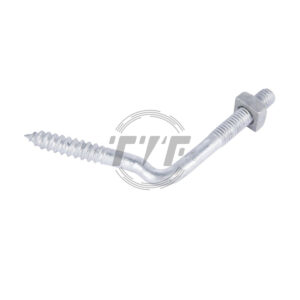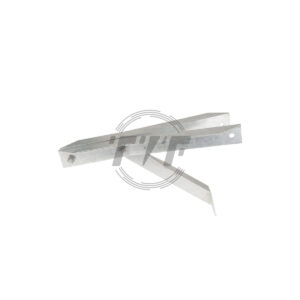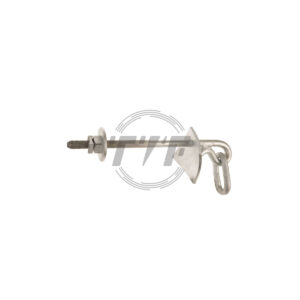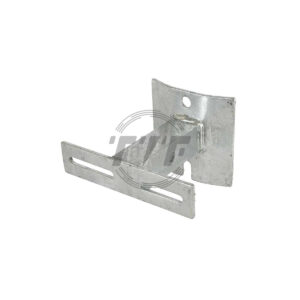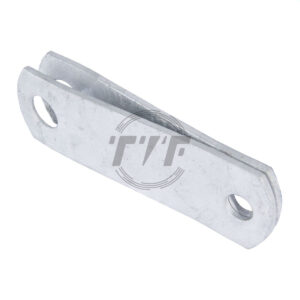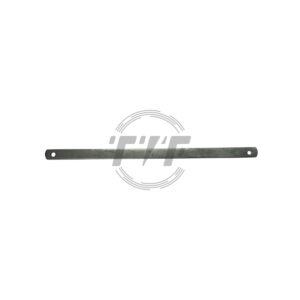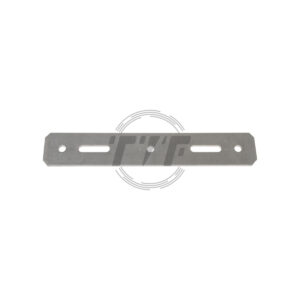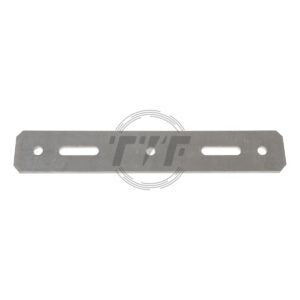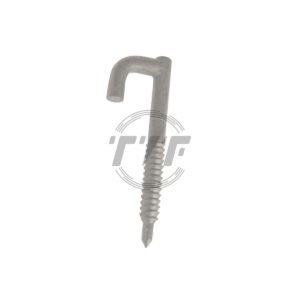Pole Line Hardware
Showing 241–252 of 301 results
-
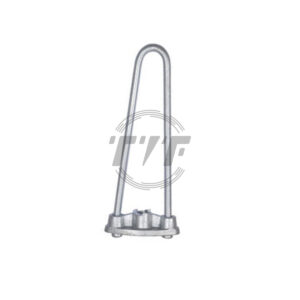
Stay Rod for Connecting Stay Wires to Ground Anchor
-

Steel Angle Screw for Installing Porcelain T Knob
-

Steel Arm, Weight: 33.4 lb
-

Steel Bracket, Length: 11.75 in, Weight: 5.63 lb
-

Steel Conduit Bracket
-

Steel Connecting Link for Insulator or Guy Attachement, 1/4″ x 3″
-

Steel Crossarm Brace
-

Steel Double Arming Plate, Length: 24.00 in, Weight:12.85 lb
-

Steel Double Arming Reinforcing Plates, 1/2″ x 4″ x 30″
-

Steel Double Arming Reinforcing Plates, 1/4″ x 4″ x 17″
-

Steel Double Arming Reinforcing Plates, 1/4″ x 4″ x 23-1/2″
-

Steel Drive Hook, Length: 3.50 in
Read More
Pole line hardware composes of different components used in pole line construction. It is also known as pole hardware fitting or pole line accessories. They are used for bracing hardware onto the poles and protect the power from flowing. They are categorized according to application and this involves utility pole line hardware and telephone pole hardware.Types of Power Line Hardware
Anchor Rods
Anchor Rod is a rod that is embedded in concrete foundations to provide full support to the pole line infrastructure.
Guy Clamp
Guy Clamp is a component with straight parallel grooves to hold or secure the ends of guy strand wires on a pole line structure
Steel Cross Arm
Steel cross arms are accessories braced on a pole line structure to help support and uphold the electrical components of power lines. They are strong, reliable and durable for use in new installations and replacement of old ones.
Secondary Rack
Secondary rack are used for stringing the conductors and are able to support more than two conductors. After being mounted on the pole line, they are secured with lag bolts to secure the connection.
Guy Thimble
Guy thimble is a galvanized rounded metallic component that is used on the pole line to provide an interface fitting to connect the guy wire.
Stay Rod
Stay rod is a galvanized steel rod that is used to join the stay wire to the ground anchors. They are also fitted with eye nuts and washers.
Ball Clevis
This is used to connect the ball and socket insulators to the other pole hardware using its ball.
Pole Top Pin
Pole top pin is a device that is used to support overhead electrical conductors on the poles.
Pole Top Bracket
Pole Top Bracket is used for bracing insulators to provide a bigger distance between different phases.
Material for Pole Line Hardware
The components of the pole line hardware are made by different materials that make them stand out from the rest depending on their utility. These include:
Carbon Steel
This is considered the most preferable material for making the different components of the pole line hardware. Carbon steel is hard and is known to withstand harsh environmental conditions, rust and corrosion. Some components of pole line hardware that are made of carbon steel include towers, dead end components, fasteners and aerial drop hardware.
Polycarbonate
Some components such as insulators and electrical enclosures such as the meter box are made of polycarbonate as they provide high resistance and durability of the components.
Aluminum
Aluminum is light, functional and durable to use in making the pole line hardware. Examples of hardware made from aluminum include suspension clamps, cables, clevis, and cable straps and tap brackets. This makes them durable, reliable and strong to use in pole lines.
Application of Pole Line Hardware
Pole line hardware is used on various places that are capable of transmitting power. Such include;
Transmission Lines
These compose of systems of structures, insulators, wires and other hard components used in distributing electricity form one point to another. Transmission lines use the pole line hardware in order to transmit high voltage powers form the power stations.
Telephone Pole Line
Telephone pole lines are structures that are used to mount a wide range of telephone communication parts, equipment and components. The pole line hardware is used to anchor, hold and fasten these components.
Utility Pole Mounting Line
These are posts or columns used to support overhead power lines and other range of public utilities. These may include electric cables, fiber optic cables, street lights and transformers. The pole line hardware s evidently used to mount and uphold such components.
Factors to Consider when Selecting Pole Line Hardware
- Safety – components such as insulators, cables and transformers may be hazardous and thus should not be gambled with.
- Efficiency – depending on the different application aspects, the pole line hardware should be effective to install.
- Compliance – this is the fact that the components installed are doing exactly what they are supposed to do.
- Maintenance – overhead lines are easy to maintain compared to underground lines thus it is vital to select components with easy maintenance.
- Convenience – when installing the different pole line hardware, this should be the most important aspect when selecting.

